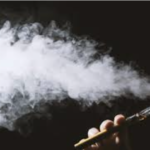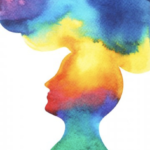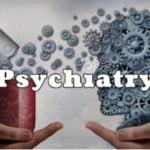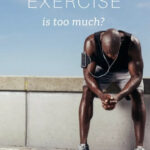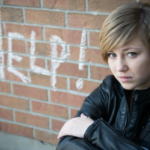The latest thinking about mask-wearing in the time of Covid.
Let me start by saying this is not a political discussion. I’m a scientist and a neuropsychiatrist, not a politician. And like many of you, I’m trying to put the divisive political debate in my rearview mirror. It’s a waste of time and energy that we so desperately need right now to solve more pressing issues. One such issue is the fraught topic of masks.
I’m fascinated by the emotionality we’ve instilled into a 4”x 8” piece of cloth. We’ll deal with the science in a minute but start with the psychology. Let’s look underneath the mask, so to speak.
As I see it, there are 3 main areas of discomfort surrounding masks:
- Intrapsychic, often anxiety from unconscious sources, coming from our emotions and underlying traumas.
- Interpersonal, involving how we relate to one another; and
- Sociocultural, becoming a lightning rod for other agendas.
You’ve heard people complain of feeling smothered, finding it hard to breathe, even getting light-headed while wearing a mask. Anxiety, attributed to the mask but not coming because of the mask, can make us feel impaired when science shows we are not in any way compromised. This anxiety can be processed as a feeling of being smothered, which then can create a panic reaction. Where does the anxiety originate? That depends on your previous experiences and your current mental state. During times of chronic stress (which, let's face it, we’re all facing every day), we’re far more vulnerable to being triggered. For example, if we had intrusive parents or other authoritarian figures in our life, we may be harboring a strong need to defend our personal choice independent of outside pressures. Any mandatory restrictions can rekindle these early feelings and create a strong urge to rebel, even when these feelings are more tied to our childhood than to the current realities. Another interesting scenario comes from our heightened but potentially unconscious fear of becoming infected. This can trigger what’s known as ‘counter-phobic behavior’- acting as if we’re immune or impervious to the real risks despite clear evidence to the contrary. This can be seen in those insisting that Covid is no worse than the flu, even as hospitalizations and death tolls mount.
If you feel anxiety arising around mask-wearing, it's a great time to examine the sources and honestly ask yourself: “Why?” “What is this about?” “What does this feeling remind me of?” rather than simply blaming it on the presence of the mask.
Anxiety comes from inside our heads, not from what’s on our faces.
The interpersonal disruption is much easier to understand. We count on being able to read people around us, their faces signaling to us if we are in the company of friend or foe. Should we connect or protect? It’s a split-second reaction that comes from reading those around us. But how can we interpret those anonymous masked faces we see in the grocery store or sidewalk? This can stir up our anxiety quickly, adding to our already heightened sense of isolation and vulnerability. The result? A feeling of being alone and anonymous even when others are present. And more - a deep emotional discomfort. And we blame it on what’s close at hand - those masks.
The sociocultural pressures about masks are evident all around us, with social posts, protests, and even outright violence erupting for or against mask-wearing. It’s become an emblem of the tribalism that is rampant in America today. We feel self-conscious. Am I being judged by others? Am I drawing a potentially hostile reaction from those around me? Tribalism has split us apart rather than bringing us together to fight the most massive health crisis we’ve had to endure. Rather than a question of safety, it has become a question of taking sides. Masks have been imbued with a political characteristic that just isn’t based in fact.
Science Vs. Myth
Now that we’ve explored these three sources of discomfort surrounding masks, let’s get to the science.
Here are three big myths that science clearly debunks:
- People with Asthma should not wear a mask. False. Masks do not impair gas exchange or the concentration of oxygen in your bloodstream. Exercise or even wheezing is not impacted by mask-wearing.
- Masks create a build-up of CO2 - carbon dioxide. False. The flow of exhaled CO2 continues unabated while wearing a mask, and the levels of PCO2 remain healthy in your bloodstream. What you may feel is an intolerance to normal levels of CO2, exacerbated by anxiety.
- Masks can make you sick. False. If you wear the wrong synthetic fiber, it could potentially cause a rash. It may even fog up your glasses. Those are truly the worst outcomes of regular mask-wearing and are easily corrected with a simple change of mask material or shape.
The facts are clear, and science is telling us:
- It is an indisputable fact that we all must wear a mask when outside our homes. Or inside our homes if someone has broken quarantine (see Dr. Fauci). Period. No exceptions.
- If you’ve had Covid, you still need to wear a mask. You can still house the virus and spread it to others, even if you are not infected yourself.
- If you’ve been vaccinated, you need to continue to wear a mask for the same reason as above. Just because you are immune does not mean others are immune from you!
Here are some tips to help you overcome any mask discomfort you may be feeling:
- Practice Breathwork before you put on a mask. Start with slow inhales through your nose, and a longer, slower exhale through your nose. Then proceed to "Box Breathing" - it’s a great exercise! Inhale for a count of 4. Hold for a count of 4. Exhale for a count of 4. And hold for a count of 4. 4-4-4-4. Easy!
- Put on your mask, and repeat your Breathwork once again. Do it a few more times to get yourself settled.
- Be aware of what your body is telling you. Is my body starting to ramp up? Is my heart racing? Do I feel muscle tension? Am I breathing faster? Are fears entering my head? Is my self-talk turning negative? Breathe into it and know that it's coming from inside your body as opposed to external danger.
- Finally, think about all the others in the world who are also wearing masks and how we are all coming together around a common action to help each other in this time of need.
My final thought is built after much study and discussion with others in the field. Mask wearing is the single most effective means to prevent the spread of Covid and prevent you from catching it. With the vaccine en route to us now, the end is finally in sight, and staying safe in these coming months is even more essential. This is an opportunity to be both selfless and selfish in one simple act. Wear your mask every time you leave the house. Please do it for yourself, your family, and your community.
If you need help during these unprecedented times, please reach out to me or my team. As always, we’re here for you.
